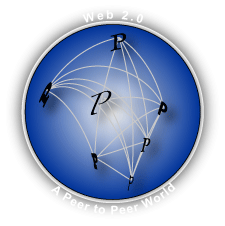 Based on numerous executive conversations I’ve had over the past few months, I’m struck by the staying power of 20th century “communications” rules, which still govern many brands today. Therefore, I’ll reveal hidden assumptions that lurk in too many boardrooms in the desire that you root them out before your rivals, so you can outmaneuver them before they disrupt you. Based on numerous executive conversations I’ve had over the past few months, I’m struck by the staying power of 20th century “communications” rules, which still govern many brands today. Therefore, I’ll reveal hidden assumptions that lurk in too many boardrooms in the desire that you root them out before your rivals, so you can outmaneuver them before they disrupt you.
20th century success formulas offer very thin ice on which to skate, and many brands will have a cold awakening. Periods of disruption make assumptions lethal because disruptions change past rules or invalidate them completely, which leads executives and brand stewards astray. In this brief treatement of a complex subject, I’ll show why executives unwittingly sabotage social business’s network-based communications by using mass communications principles.
[…]
Most people and firms sense that social and market forces are changing “everything,” but they don’t understand how exactly. This page can be your guide to understanding the shifts and flowing with them, so you can adapt and thrive. Are you ready? Let’s dive in.
21st Century Career Challenges
We have heard for years that “digital technology” is wonderful, but digital social is changing the structures of how people live and work around the world. Digital social and data are invalidating many of the 20th century “golden rule” career assumptions. Here’s why.
Digital communications help people talk more, and when people talk, they change each other’s minds—on a massive scale. This makes everything more dynamic. Large, tightly integrated organizations, whether commercial, government or nonprofit, cannot adjust to people quickly enough. They are in turmoil, and they are changing how they hire. Employment is changing forever. Here are some highlights:
The Industrial Economy is fading in favor of the emerging Knowledge Economy. The Industrial Economy featured large organizations, long product life cycles and unprecedented wealth (what we used to call “stability”). The new Knowledge Economy will feature even more wealth, but only after a period of significant disruption. Its structures […]
In the knowledge economy, people are motivated by greater autonomy, mastery, and purpose—not by carrots or sticks.. connectivity is second only to a water pump in its significance to a village.. It will not be enough, as it was back in the early Web, to just leave a website lying around to be found. Business has to become a travelling exhibit, a movable market stall that can be adjusted and placed wherever people are or want to be.. Marketers have begun to view social networks as a significant marketing contact point (and perhaps even more important than traditional channels) for procuring consumer data and knowledge.. people are diving into the Web 2.0 and 3.0 pools before they even know with whom they are swimming.. In 2010 we will see more public agencies taking risks to engage in this sort of “flat” information sharing and insight gathering.. sociology will rapidly become the new economics. […]
2010 Predictions and recommendations for enterprise social networking and Web 2.0: how executives and enterprises can leverage social business to increase competitiveness. Understand how social networks are contributing to the end of the Industrial Economy: the importance of blogs, Twitter, Facebook, LinkedIn, YouTube, MySpace and focusing on relationships. […]
Criticism of uninformed media coverage of the value of social networks, case study of the New York Times’ uninformed opinion piece on Facebook, Facebook Exodus… examples of how many people on social networks don’t know how to use the networks to find fulfillment […]
Report and analysis on the Social Networking Conference #snc2009 featured enterprise social networking managers sharing their in-the-trenches experiences and advice: Electronic Arts, Nokia, Intel, Sun, Wal-Mart, Digg, HP, Oracle, Dow Jones, Yammer, Google. Learn about how social media is unfolding in the enterprise, enterprise 2.0 […]
Volatility, Uncertainly and Opportunity—Move Crisply while Competitors Are in Disarray
 Now that the Year in Review 2008 has summarized key trends, we are in excellent position for 2009 prognostications, so welcome to Part II. As all experienced executives know, risk and reward are inseparable twins, and periods of disruption elevate both, so you will have much more opportunity to produce uncommon value than normal. Now that the Year in Review 2008 has summarized key trends, we are in excellent position for 2009 prognostications, so welcome to Part II. As all experienced executives know, risk and reward are inseparable twins, and periods of disruption elevate both, so you will have much more opportunity to produce uncommon value than normal.
This is a high-stakes year in which we can expect surprises. Web 2.0 and social networks can help because they increase flexibility and adaptiveness. Alas, those who succeed will have to challenge conventional thinking considerably, which is not a trivial exercise in normal times. The volatility that many businesses face will make it more difficult because many of their clients and/or employees will be distracted. It will also make it easier because some of them will perceive that extensive change is afoot, and Web 2.0 will blend in with the cacaphony. Disruption produces unusual changes in markets, and the people that perceive the new patterns and react appropriately emerge as new leaders.
[…]
2009 Poised as Inflection Point in Enterprise Usage—LinkedIn Increases Relevance to B2B Executives
 During the 1990s, I was intimately involved with helping global organizations to decentralize their information technology—as a management consultant and marketing executive. However, a far more disruptive force is imminent today: communications and marketing are rapidly evolving into a networked, distributed pattern, following IT’s lead. Individuals that congregate online will have an increasing role in affecting how other people make decisions, significantly weakening the influence of the mass media on which many marketing strategies depend. Organizations that depend on centralized, controlled communications will be astonished at how fast they become irrelevant over the next five years. Although the case studies are still being written, I’ll go on record as saying that the 2008 U.S. presidential election will prove to be an inflection point of digital social networks’ disruptive potential. During the 1990s, I was intimately involved with helping global organizations to decentralize their information technology—as a management consultant and marketing executive. However, a far more disruptive force is imminent today: communications and marketing are rapidly evolving into a networked, distributed pattern, following IT’s lead. Individuals that congregate online will have an increasing role in affecting how other people make decisions, significantly weakening the influence of the mass media on which many marketing strategies depend. Organizations that depend on centralized, controlled communications will be astonished at how fast they become irrelevant over the next five years. Although the case studies are still being written, I’ll go on record as saying that the 2008 U.S. presidential election will prove to be an inflection point of digital social networks’ disruptive potential.
LinkedIn is a leading venue for B2B and B2C executives, so it merits significant attention. The inputs for this Executive Adoption Snapshot are varied: I have had the opportunity to work with hundreds of executives to apply LinkedIn to their business processes in 2008. I met two LinkedIn executives […]
Enterprise 2.0 and B2C Web 2.0 Show Serious Traction—But Social Sticky Wickets Remain—How to Trust?
 The Social Networking Conference (SNC) was an excellent place to check the pulse of Web 2.0 adoption from customer and provider perspectives. Producer Marc Lesnick explained in his opening remarks that, in the months preceding this conference, corporations had knocked on his door asking to get involved. His Ticonderoga Ventures had held several SNCs over the past few years, and it had been largely the purview of social networking start-ups and their facilitators. This is a very apt indication of the enterprise adoption predicted by my State of Social Networking Forrester coverage and 2007 Review. The Social Networking Conference (SNC) was an excellent place to check the pulse of Web 2.0 adoption from customer and provider perspectives. Producer Marc Lesnick explained in his opening remarks that, in the months preceding this conference, corporations had knocked on his door asking to get involved. His Ticonderoga Ventures had held several SNCs over the past few years, and it had been largely the purview of social networking start-ups and their facilitators. This is a very apt indication of the enterprise adoption predicted by my State of Social Networking Forrester coverage and 2007 Review.
SNC SF 2008 took place July 10-11, 2008 at the UC San Francisco’s Mission Bay Conference Center. It was a focused conference that balanced start-ups’ and enterprises’ innovation—with a dash of perspective from Apple co-founder Steve Wozniak and Social Networking Watch’s Mark Brooks. On the enterprise side, GE’s Grewal and GM’s Denison covered the enterprise 2.0 and B2C Web 2.0 perspectives respectively, while the U.S. Air Force’s Adkins presented nascent cross-boundary collaboration in […]
IBM Drives Enterprise Adoption of Social Networks with New Enterprise Adaptability Practice offers reportage on the launch of IBM’s enterprise adaptability practice
Shades of Web 3.0—The Googlization of Knowledge Management—Resetting the Adoption Clocks
 Tuesday IBM announced a new services practice, “Enterprise Adaptability” services, which aims to help global companies realize a quantum leap in workforce agility and collaboration by facilitating their adoption of social networks and Web 2.0. As predicted in the Year in Review—2007, social networks and Web 2.0 are being embraced in the enterprise B2B arena this year, and this announcement shows that adoption is right on ahead of schedule. Enterprise 2.0 is reaching the mainstream, and companies that do not aggressively adopt enterprise 2.0 will experience serious competitive threats within three years. Tuesday IBM announced a new services practice, “Enterprise Adaptability” services, which aims to help global companies realize a quantum leap in workforce agility and collaboration by facilitating their adoption of social networks and Web 2.0. As predicted in the Year in Review—2007, social networks and Web 2.0 are being embraced in the enterprise B2B arena this year, and this announcement shows that adoption is right on ahead of schedule. Enterprise 2.0 is reaching the mainstream, and companies that do not aggressively adopt enterprise 2.0 will experience serious competitive threats within three years.
IBM’s announcement validates enterprise social networking, but more significant is their rationale for launching the practice: their clients are struggling with adjusting to the Knowledge Economy, globalization and decreasing margins, and Enterprise Adaptability prescribes collaboration and innovation to cure legendary agility gaps. As explained below, Enterprise Adaptability smells like breakthrough, although it’s barely out of the oven. To look behind the curtain, I caught up with […]
|
|
 Based on numerous executive conversations I’ve had over the past few months, I’m struck by the staying power of 20th century “communications” rules, which still govern many brands today. Therefore, I’ll reveal hidden assumptions that lurk in too many boardrooms in the desire that you root them out before your rivals, so you can outmaneuver them before they disrupt you.
Based on numerous executive conversations I’ve had over the past few months, I’m struck by the staying power of 20th century “communications” rules, which still govern many brands today. Therefore, I’ll reveal hidden assumptions that lurk in too many boardrooms in the desire that you root them out before your rivals, so you can outmaneuver them before they disrupt you.
 Now that the Year in Review 2008 has summarized key trends, we are in excellent position for 2009 prognostications, so welcome to Part II. As all experienced executives know, risk and reward are inseparable twins, and periods of disruption elevate both, so you will have much more opportunity to produce uncommon value than normal.
Now that the Year in Review 2008 has summarized key trends, we are in excellent position for 2009 prognostications, so welcome to Part II. As all experienced executives know, risk and reward are inseparable twins, and periods of disruption elevate both, so you will have much more opportunity to produce uncommon value than normal. During the 1990s, I was intimately involved with helping global organizations to decentralize their information technology—as a management consultant and marketing executive. However, a far more disruptive force is imminent today: communications and marketing are rapidly evolving into a networked, distributed pattern, following IT’s lead. Individuals that congregate online will have an increasing role in affecting how other people make decisions, significantly weakening the influence of the mass media on which many marketing strategies depend. Organizations that depend on centralized, controlled communications will be astonished at how fast they become irrelevant over the next five years. Although the case studies are still being written, I’ll go on record as saying that the 2008 U.S. presidential election will prove to be an inflection point of digital social networks’ disruptive potential.
During the 1990s, I was intimately involved with helping global organizations to decentralize their information technology—as a management consultant and marketing executive. However, a far more disruptive force is imminent today: communications and marketing are rapidly evolving into a networked, distributed pattern, following IT’s lead. Individuals that congregate online will have an increasing role in affecting how other people make decisions, significantly weakening the influence of the mass media on which many marketing strategies depend. Organizations that depend on centralized, controlled communications will be astonished at how fast they become irrelevant over the next five years. Although the case studies are still being written, I’ll go on record as saying that the 2008 U.S. presidential election will prove to be an inflection point of digital social networks’ disruptive potential. The Social Networking Conference (SNC) was an excellent place to check the pulse of Web 2.0 adoption from customer and provider perspectives. Producer Marc Lesnick explained in his opening remarks that, in the months preceding this conference, corporations had knocked on his door asking to get involved. His Ticonderoga Ventures had held several SNCs over the past few years, and it had been largely the purview of social networking start-ups and their facilitators. This is a very apt indication of the enterprise adoption predicted by my State of Social Networking Forrester coverage and 2007 Review.
The Social Networking Conference (SNC) was an excellent place to check the pulse of Web 2.0 adoption from customer and provider perspectives. Producer Marc Lesnick explained in his opening remarks that, in the months preceding this conference, corporations had knocked on his door asking to get involved. His Ticonderoga Ventures had held several SNCs over the past few years, and it had been largely the purview of social networking start-ups and their facilitators. This is a very apt indication of the enterprise adoption predicted by my State of Social Networking Forrester coverage and 2007 Review. Tuesday IBM announced a new services practice, “Enterprise Adaptability” services, which aims to help global companies realize a quantum leap in workforce agility and collaboration by facilitating their adoption of social networks and Web 2.0. As predicted in the Year in Review—2007, social networks and Web 2.0 are being embraced in the enterprise B2B arena this year, and this announcement shows that adoption is right on ahead of schedule. Enterprise 2.0 is reaching the mainstream, and companies that do not aggressively adopt enterprise 2.0 will experience serious competitive threats within three years.
Tuesday IBM announced a new services practice, “Enterprise Adaptability” services, which aims to help global companies realize a quantum leap in workforce agility and collaboration by facilitating their adoption of social networks and Web 2.0. As predicted in the Year in Review—2007, social networks and Web 2.0 are being embraced in the enterprise B2B arena this year, and this announcement shows that adoption is right on ahead of schedule. Enterprise 2.0 is reaching the mainstream, and companies that do not aggressively adopt enterprise 2.0 will experience serious competitive threats within three years.